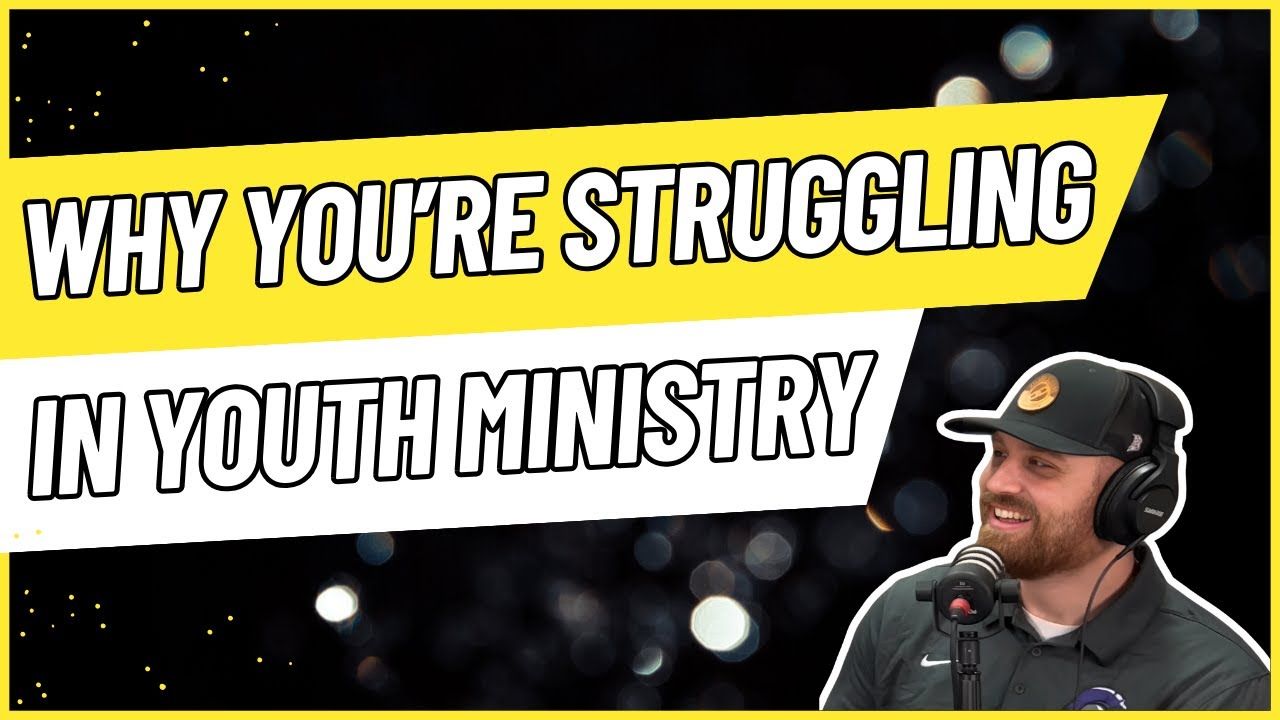How to Avoid These Top 5 Major Student Pastor Frustrations | Beyond The Youth Room • Episode 51
Empowering Youth Ministry through Parental Involvement
In my (Keith's) years of youth ministry, I’ve seen a clear shift since we restructured our approach. While I’ve worked fewer hours, I’ve witnessed more growth within our youth. It’s no secret that engaging students deeply in their faith requires more than just fun activities; after all, as Ryne once said, “People aren’t coming to churches for fun. If I’m lost, church is the last place I’m going for fun. What you win them with, you win them to.”
This shift brings us to one of the most common frustrations in youth ministry—getting parental buy-in. Lifeway Research found that 68% of youth pastors report their biggest challenge is parents not prioritizing their teens' spiritual growth. While some students come from non-Christian homes, the most frustrating scenario is when Christian parents themselves do not prioritize their own spiritual development, let alone that of their teens. In these situations, it often feels like students are competing with their parents, as their growth reveals the stagnation in the adults’ spiritual lives.
As youth leaders, we often think, "If only the adult ministries would step up and support these parents!" It’s a valid concern.
Ryne, having stepped out of youth ministry for a season to work with adults, recalls that the resistance and complacency among adults were far greater than with teens. While youth are eager to engage, to learn, and to be part of something bigger, adults often get bogged down in conflicts and distractions that keep them from fully embracing gospel living. The energy and boldness we see in our youth can feel lacking in adult congregations, which can be disheartening.
But here's the silver lining: despite the frustrations, there is hope in mobilizing youth as disciple-makers.
Using the "Four Chair Discipleship Model"—with Chair 1 being non-believers, Chair 2 believers, Chair 3 workers actively serving, and Chair 4 disciple-makers who are investing in others—we can help students identify where they are and push them to take the next step. Our goal should be to unleash them to teach others, not just consume spiritual experiences.
Youth ministry is a roadmap, not a menu. It’s about guiding students through spiritual transformation, equipping them to grow into disciple-makers, and encouraging them to pass on what they’ve learned. When parents see their teens not just participating but leading, it has the potential to spark change in the entire family. As frustrating as it can be when parents don’t seem on board, investing in the youth themselves might just be the catalyst for broader family and community revival.
Balancing Leadership in Youth Ministry: Learning from Jesus' Example
Leading in youth ministry comes with its own unique set of challenges, but one thing we can draw from is how Jesus worked with young people. He chose young disciples to change the world, and that should encourage us when we feel frustrated, especially when parents don’t seem as involved as we'd like. It’s not just about lessening our expectations but recognizing that young people can set the pace for others, including their own families. We can resource parents, providing them with tools to raise godly children, even if we aren’t parents ourselves. As Ryne mentioned, there are many great resources available for parents today, from authors to podcasts.
As leaders, we should be curators of these resources, encouraging parents and equipping them to take ownership. Yet, we should also remember that the teens themselves, through their passion and faith, may lead the way to revival in the church. Even when parents seem uninvolved, we can still invest deeply in the lives of the students.
Be Faithful Where You Are
Often, as youth leaders, we think, “If only others would step up, this would be easier.” But the reality is, we are called to be fruitful where we are and invest in the students who come to us, even when they aren't consistent in attendance. Ryne’s experience with a student who was often absent but was still boldly sharing the gospel in her own context is a great reminder of this. Consistency in attendance doesn’t always equate to spiritual growth. The more we equip students, the more they will live out their faith beyond the walls of the church, in places we may never reach.
Undoing the World’s Influence
One of the most common frustrations in youth ministry is feeling like we aren’t making ground on undoing what the world teaches our students. But we can find hope in the fact that this generation is hungry for truth. In a world full of distractions and social media, many young people are looking for something real and lasting. Barna research shows that trust in most institutions has decreased among young people, but trust in their elders has increased. This is an opportunity to show them the truth of God’s word.
While it can be disheartening to see students who come from broken homes or are steeped in the world's values, it’s important to remember that God can work in even the most difficult situations. Our job is to equip them to stand for what’s right, even when the world tells them otherwise.
Balancing Unchurched Teens and Discipling Church Kids
Another common frustration is how to balance the needs of unchurched teens with those who are already growing in their faith. This balance can be tricky if we focus too much on information alone. But when we shift our focus to transformation, these two groups can work together beautifully. Ryne shared an insightful perspective: when students who have grown in their faith are encouraged to help disciple others, they learn more in the process. By empowering church kids to lead and teach, we allow them to grow even further in their own walk with Christ.
As leaders, we need to embrace the idea that our job is not just to fill students with knowledge but to help them be doers of the Word. Teaching and investing in others is one of the most effective ways to grow spiritually. When we give students ownership of their faith journey, we are helping them take the next step in their growth, while also reaching out to those who may not yet have that foundation.
Balancing Needs in Youth Ministry: A Roadmap for Growth
In youth ministry, it's easy to focus on the "church kids"—those who attend regularly and are familiar faces at every event. But is attendance alone the best indicator of a growing and engaged faith? If these students lack compassion for the lost or motivation to grow in their relationship with the Lord, should they be the central focus of our leadership efforts? The answer lies in recognizing the spiritual hunger of new believers and the importance of "going with the goers"—those truly eager to learn and grow. Rather than trying to cater to every preference, we can instead rely on a solid roadmap for discipleship. One effective framework is the Four-Chair Discipleship Model - This model helps leaders assess where each student stands on their faith journey and offers a practical roadmap to advance them to the next step. Whether you have a group mostly in Chair 1 or in Chair 3, your teaching will need to adapt accordingly. Understanding where the majority of your students are spiritually allows you to tailor your approach for maximum impact.
Of course, this method doesn't mean neglecting individual needs. Sometimes, there’s pushback from students or parents questioning why their child isn't receiving the same attention. In these moments, it’s important to prayerfully discern where God is leading the ministry. Ultimately, as leaders, we answer to the Lord for how we steward our time and resources in guiding these students.
From Entertainment to Fulfillment
One frustration shared by many youth pastors—22% to be exact—is the pressure to entertain teens just to keep them coming back. It’s a common issue in youth ministry, where games and fun activities are often seen as necessary to draw a crowd. But is this focus on fun really sustainable or spiritually enriching?
As youth pastors, we need to shift the focus from entertainment to real fulfillment. Teens can find fun at parties, friends' houses, or any number of places, but the church should offer something deeper. It’s the offer of true fulfillment, found in Christ, that will draw them in and keep them coming back.
Youth ministry is more than just a good time. It's about guiding students toward a lasting relationship with Christ and equipping them to become workers and disciple-makers in His kingdom. Let's lead with purpose, focusing on the road ahead rather than just what's on the menu for today.











